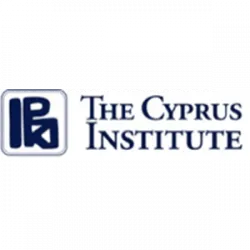
Virtual Environments Lab, The Cyprus Institute
Location: Nicosia, Cyprus
Contact: Georgios Artopoulos ( g.artopoulos@cyi.ac.cy )
The Virtual Environments Lab (VELab) is a research laboratory in Cyrpus for simulating built environments and urban heritage sites. Through the analysis of simulated and observation data, it enables us to understand the impact of hypotheses and different scenarios for the reuse and integration of heritage in the contemporary life of cities. VELab uses digital tools in order to respond to contemporary societal challenges and contribute to the study of cultural heritage for urban resilience and the social sustainability of historic Mediterranean cities. Overarching goal of VELab is to understand how the interaction with built heritage, sites and monuments, can affect the expression and interpretation of cultural identities in our contemporary societies. Research areas of VELab include:
- Virtual Environments for Research and Education: 3D immersive environments that can be used as an open ended observational and analytical instrument to register and interpret real-time generated data of users’ interaction with historical information.
- Building Information Modelling: for retrofit and built heritage reuse.
- User engagement methods: community participation in heritage management.
- Representation techniques and Interaction Design: application of cinematic language and spatially distributed narratives for the study of historic built environments and cultural landscapes.
- Visualisation and simulation of historic sites and their environment, digital twins. VELab features virtual reality stations and gear (Valve Index, multiple Oculus Quest2, HTC Vive, PiMAX 5K), interactive screen, 3D data processing workstations, video projectors, and surround sound system, to support training and research activities in interactive and immersive visualization.
Services currently offered by the infrastructure
The VELab offers several services for the study and analysis of Cultural Heritage, such as the 3D documentation-to-Virtual Reality and the Scan-to-HBIM pipeline. The research of the Lab focuses on the implementation and installment of VR applications for museums, including working on the spatialization of digital assets and spatialized audio in VR for visitor engagement in museum spaces. Moreover, the Lab applies cinematic language in Digital Cultural Heritage data visualization for public engagement and develops 360 virtual visits, also enriched with crowdsourced and Digital Heritage information. The VELab expertise in the development of HBIM for built heritage conservation and sustainability, and 3D representation of heritage, provides solutions for valorisation and stakeholder engagement, interactive and immersive visualisation of spatial and architectural data for study and scientific collaboration, and participatory processes of storytelling. Thanks to the technical capacity of the High Performance Computing Facility (HPC) of the CyI, the VELab contributes to data storage, management and processing of digital assets used in 3D demonstrators and HBIM. Thanks to the expertise and services developed during its operation life, the Lab was able to attract local and European funds for the development of projects dedicated to community-oriented research (e.g., HORIZON CL6-2022-COMMUNITIES-01-05 More than green – Lighthouses of Transformative nature-based solutions for inclusive communities), solutions for the study and analysis of historical monuments (e.g., ANNFASS – An Artificial Neural Network Framework for understanding historical monuments Architectural Structure and Style) and the use of BIM and VR in building retrofit (HORIZON-WIDERA-2023-ACCESS-03). The VELab has also participated as expert in Digital Cultural Heritage in H2020 INFRAEOSC 05-2018-2019 National Initiatives for Open Science in Europe (NI4OS-Europe) and H2020-EINFRA-2014-2015 Virtual Research Environment (VRE) in Southeast Europe and the Eastern Mediterranean (SEEM).
Recently, VELab was selected to join the New European Bauhaus Stewardship Lab (2022-ongoing). It was included in a successful 2021 Texas Tech University (USA) International Research and Development Seed Grant and contributes to the NSF-funded (USA) CSSI project (2019- 2023).
Results of the research carried out at the VELab have been exhibited in several museums and galleries, such as at the Seoul Biennale of Architecture and Urbanism (2017), at the New Municipal Gallery of the City of Athens (2020), at the Fitzwilliam Museum, Cambridge (Being an Islander exhibition, 2023), and at the Kollective gallery, Marseille, France (2023).
VELab participates in a variety of training, locally and abroad, organising workshops and courses for students and researchers. Since its establishment, VELab hosted ERASMUS+ students for training from the University of Catania and the University of Texas. It supports ERASMUS+ workshops (HERSUS Project 2020-1-RS01- KA203-065407) and COST Action training schools (TU1306) and COST Short Term Scientific Missions (STSMs). Moreover, the VELab contributed to the Masters programme course “Resilient Strategies in Risk Situations”, organised by the Politecnico di Milano, Italy (2018 & 2022). Through the Cyprus Institute’s existing collaboration with the University of Illinois at Urbana-Champaign (UIUC), the VELab attracted and hosted researchers affiliated with the American university to conduct studies and educational periods.
Within the MSc and PhD degrees established at the CyI, the VELab attracts and hosts students as well as internships opportunities, Erasmus exchanges for students and professionals for study and education. The expertise in the above mentioned fields and the experience gained in educational context, allows the possibility of implementing a training focussing on Virtual Environments for Research and Education, where 3D immersive environments can be used as an open-ended observational and analytical instrument to register and interpret real-time generated data of users’ interaction with historical information. Moreover, the expertise on representation techniques and Interaction Design gives the opportunity to develop educational paths on the application of cinematic language and spatially distributed narratives for the study of historic built environments and cultural landscapes.
What this TNA offers
VELab offers personalised access on the topic of HBIM data and operation workflows, scan2BIM interoperability issues, the ‘H’ aspect of HBIM, multi-discipline data integration through HBIM for built heritage conservation. Applicants must have a basic knowledge of BIM software/modellin
